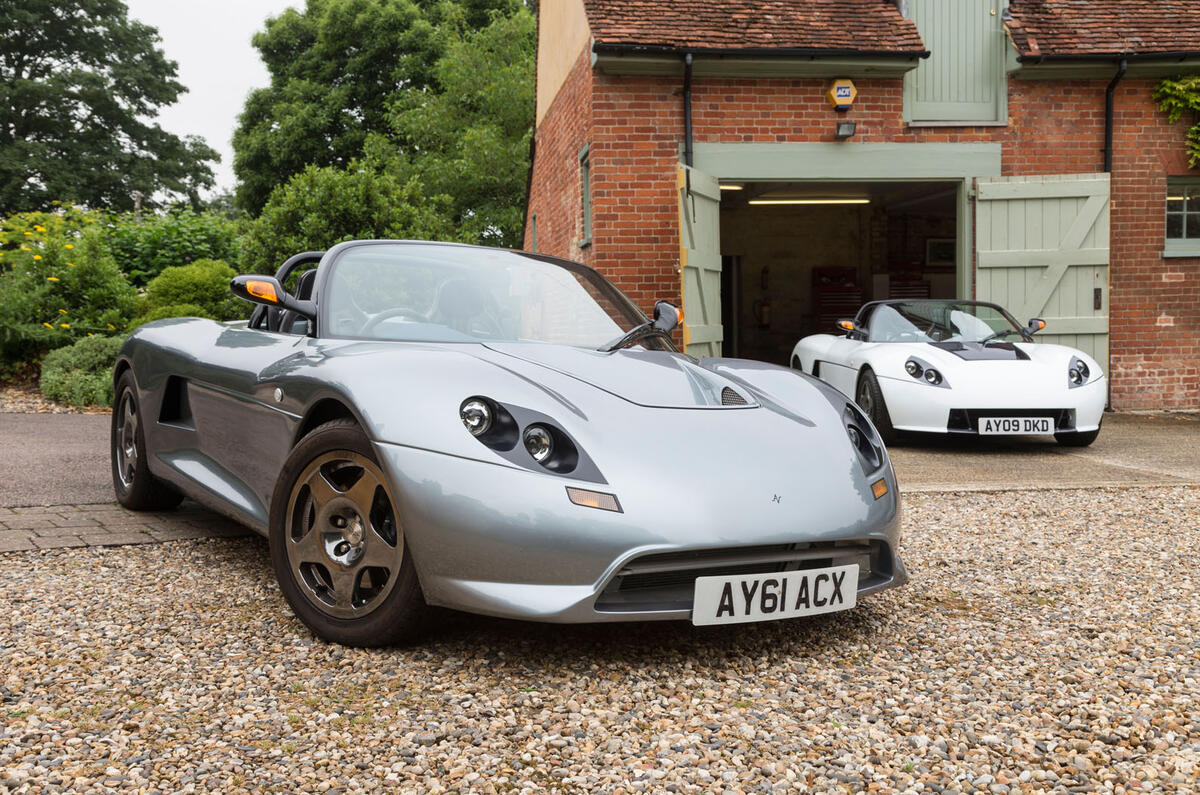Would you like to own a sports car company?
The idea has instant appeal to many a car enthusiast, but the dream fades for most as soon as complexity and risk enter the equation. But how about if much of the hard work had been done, the company had no debt and no employees, and the product was both convincing now and capable of further development? Would that make a difference?
Such thoughts ran through my head a week or two ago as I departed the Essex home of Martin Miles, founder, managing director and now vendor of MMI, the company that has backed, developed and produced the sub-£30,000, Lotus Elise-like Avocet sports car for more than 10 years. Autocar has had several enjoyable previous encounters with the Avocet – but this time was different.
This time I’d been let loose in a latest-spec Avocet prototype that had just returned from several thousand miles of high-speed European testing in the hands of Miles himself.
The Avocet is a doorless two-seat sports car with a one-piece composite body whose design started life more than a decade ago as the Strathcarron, powered by a 1200cc four-cylinder Triumph motorcycle engine.
The company went through some complex and agonising phases of ownership, emerging in the control of retired industrialist Miles, a man with much experience of great cars who always wanted to build one of his own. Miles gently developed (and renamed) the Avocet to suit his own preference for a simple, torquey car, while maintaining the many good bits from the original concept.
Why does Miles want to sell now? Partly, he says, because he has been involved for well over a decade and believes it needs a younger person to push it forward. “I’d do it myself if I were younger, or I’d retain an interest if I could find the right partner. But I’m also willing to sell the whole thing – name, cars, designs, future proposals, everything – for around £1.5 million. It’d cost much more than that to get where we are.”
Miles believes the project richly deserves a second wind. “Avocet remains unique. I don’t know another car as exclusive as this that can be economically sold at less than £30,000, especially at a volume of around 150 cars a year.”
As it stands today, the Avocet retains the original self-jigging tub chassis made in aluminium honeycomb material and designed for the Strathcarron, with fabricated tubular steel subframes at each end.
The front suspension is by race-influenced double wishbones. The rear suspension is an elegant and space-efficient de Dion layout. The rack and pinion steering is unassisted and there are disc brakes all round. The rear subframe also carries the powertrain: a transverse 150bhp 2.0-litre Ford engine and end-on gearbox, driving the rear wheels.





































































































Join the debate
Add your comment
Track day
How to make a small fortune...
LP in Brighton wrote: Invest
A Caterham for the 21st century that's already been thoroughly developed. Great idea, Caterham might be a great candidate for ownership. Even though the slightly archaic layout of current Caterham's is a major part of their appeal I suppose.